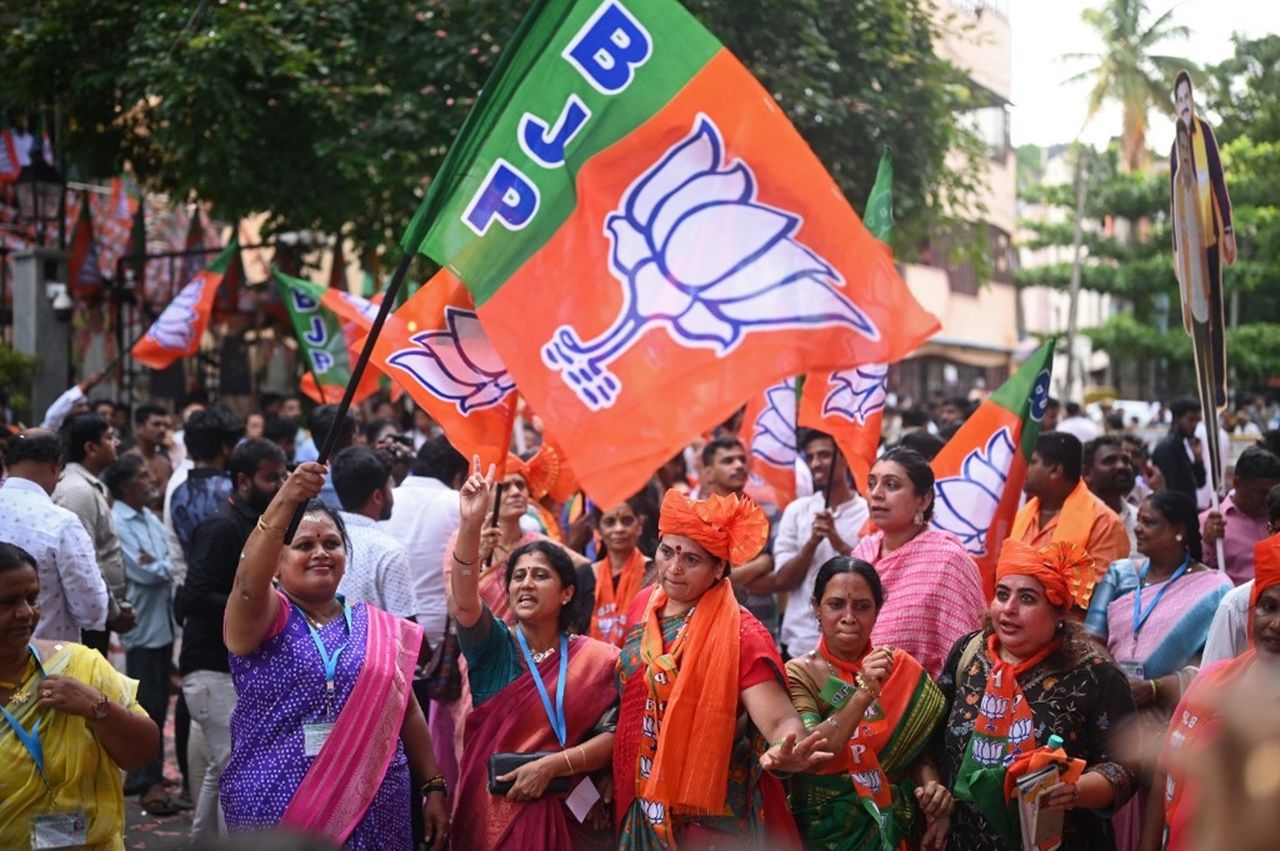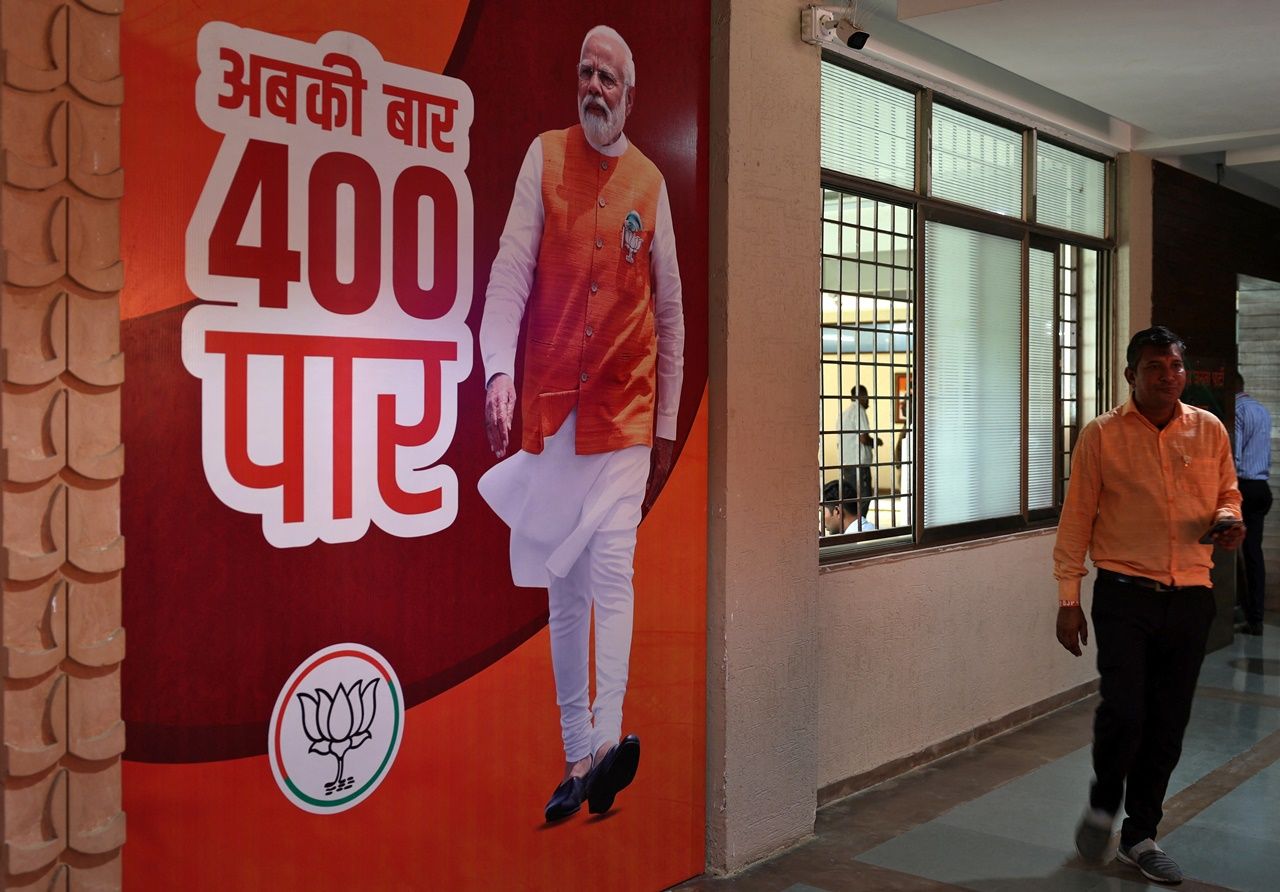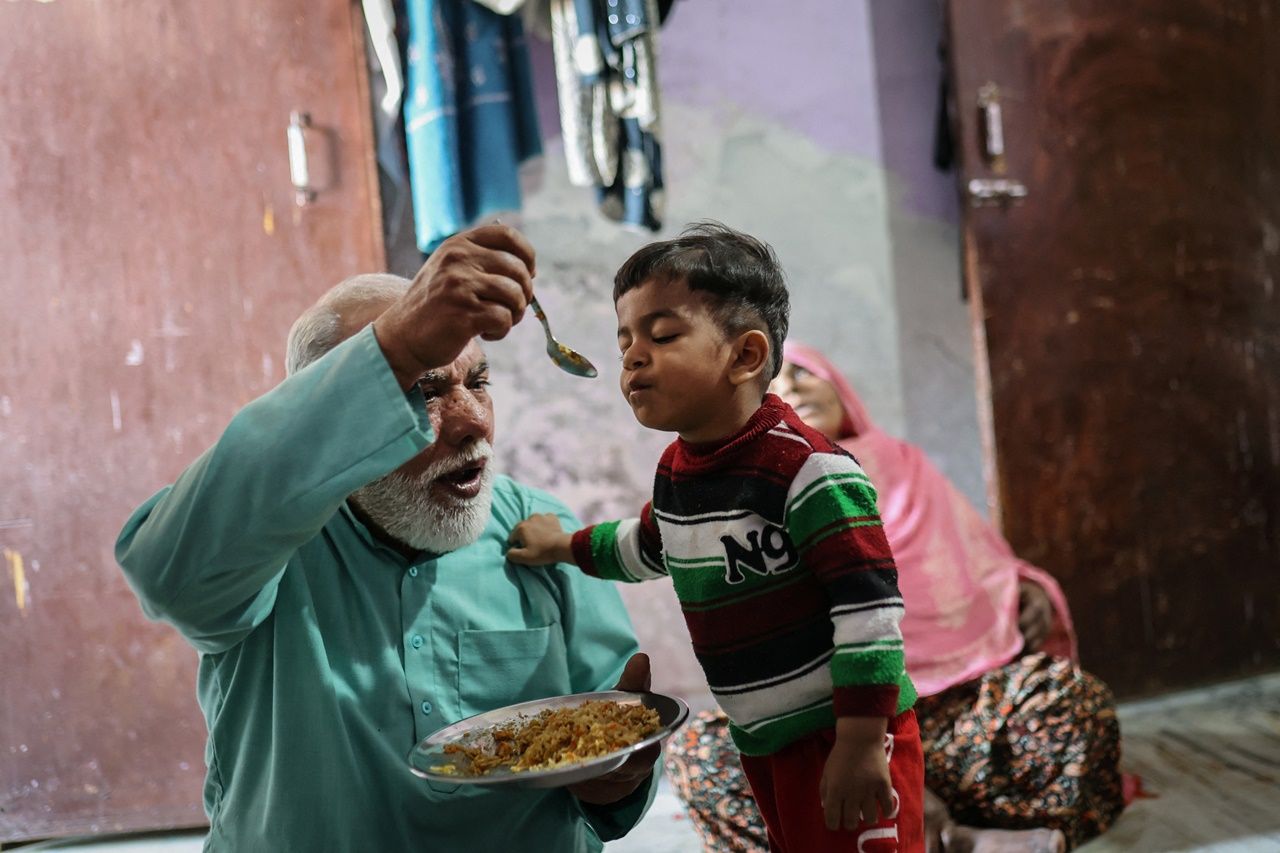The general elections in India, which held a marathon that lasted for 6 weeks, actually ended on Tuesday, June 4, 2024, after the official vote counting results indicated that the Bharatiya Janata Party, led by Prime Minister Narendra Modi, and his National Democratic Alliance achieved an expected victory.
But what was unexpected was that the BJP failed to win a majority in Parliament for the first time in ten years, with more than 50 MPs absent, forcing them to rely on other parties. In the coalition so that it can obtain a majority in the House of Representatives, this is in contrast to the performance of the opposition group, which was much better than in the previous elections.
What prompted Modi's party, which seemed to be clinging so tightly to power over the past several years, to lose so many members of Parliament? To the point of making them unable to win an absolute majority. How will this affect his management of the country as prime minister for a third term?

The most unexpected election results
Official election results The counting, completed on Tuesday, showed that Modi's party, the Bharatiya Janata Party and the NDA, had enough seats in the House of Representatives to form the next government to run India, but the BJP had only 240 MPs in the House out of a total number Representatives need to get 543, less than half, or 272, to win a majority.
Before the elections began, Modi had set a target for his alliance to win 400 seats, but the results not only missed the mark by many, but his party, the Bharatiya Janata Party, will win fewer MPs than in the previous election in 2019, when it won 63 seats. This forced him to rely on other parties in the National Democratic Rally group to be able to win a majority in Parliament.
But the overall results showed that the Bharatiya Janata Party and the NDA together won 293 seats in the House of Representatives, down from the elections that took place five years ago when they won 353 seats in the House, which is not enough to win an outright majority.
Meanwhile, India, a coalition of opposition parties led by Rahul Gandhi's Indian National Congress, got a total of 234 MPs, with the Congress alone. They already hold 99 seats in parliament, compared to 52 seats in the 2019 elections, and on top of that, they can also lobby and compete. The MP is from Mr. Modi's home state of Gujarat, where the BJP has always held one seat.

Why does Modi's party have shockingly fewer MPs?
Many analysts point out that the reason the election results appeared this way is because voters are dissatisfied with issues such as high unemployment rates. Including the methods used by the BJP to suppress opposition parties.
Dr.. Irfan Nooruddin, a professor of Indian politics from Georgetown University, told the news agency Channel News Asia (CNA) that economic issues played a greater role in these elections than the BJP expected, “The Indian economy is not thriving as many statistics indicate, and the result appears to be… GDP is very good.”
Moreover, India is facing a major unemployment crisis. Out of a huge population of 1.4 billion people, less than 10% of Indians work in the formal sector, and about 83% of the unemployed in India are young people.
“The dissatisfaction in rural areas is very high. The majority of the population in India still has to earn income from various forms of agriculture. Which has not gone well. Food security is also increasing with increasing inflation rates,” Dr Nooruddin said.
He added that although the wealthy who own huge assets are increasing rapidly in India, this is not the reality for the remaining hundreds of millions of Indians.
“I think they… have found that the focus has been on social justice issues. The economic problems faced by the opposition alliance are more attractive. Perhaps they feel that the BJP lacks understanding of their wants and needs,” Dr Nooruddin said.
Mr. Niranjan Sirgar, a senior member at the Center for Policy Research in New Delhi, confirms what happened before these elections. That is, the BJP uses government institutions to attack and suppress opposition parties. Including the arrest of the Prime Minister, several people were investigated by tax officials. Bank accounts have been frozen, making it impossible to vote as expected
I think there is a broader acceptance that this may not have been a fair election. And for voters, there is the speech that says: “This is an election to save democracy,” Mr. Sirgar said.
Another surprise was the poor performance of the BJP in the northern part of the country, Dr Nooruddin said. This is particularly the case in Uttar Pradesh, the most populous state in the country. It was the voting base that helped them win the 2014 and 2019 elections.
“BJP has uttered a lot of harsh words in this campaign. As far as anti-Muslims and emphasis on religious symbolism, it did not resonate with people at all. Especially in areas where it is considered sound rules it was quite surprising. Dr Nooruddin added:” “It was shocking to many observers.”
“You can't distract poor people who are suffering from hunger by talking about God and religion all the time.”

The BJP does not have a majority. How does this affect Modi?
Over the past 10 years, the BJP has maintained an independent majority in Parliament, allowing Modi to project the image of a decisive leader. It was always attractive, but now he has to rely on other parties for management. This raises the question: Can he rule the government?
This is something no one knew about, Mr. Sirgar said. Because we know Mr. Modi only as someone who rules with absolute power, and the “Modi phenomenon” that occurred in the recent past has its roots in this type of governance. The Modi who had to compromise with his allies is not the Modi everyone knows at all.
On Tuesday, Modi credited JD(U) leader Nitish Kumar with leading the alliance to a huge victory in Bihar, but they have had a love-hate relationship for a long time and the JD(U) and TDP are at it again. Back and forth between the BJP and the opposition parties several times. Both parties also depend on Muslim voters. As well as moving away from the policy of Hindu supremacy pursued by the Bharatiya Janata Party.
Political analyst Rashid Kidwai said that this will be difficult for Modi because the alliance came with certain expectations. Including sitting in important positions and his negotiating ability will be tested under a coalition government. This had not happened in India for a long time before 2014.
“The game he has to play is to please the partners and is willing to give up the ministerial chair but ministerial positions do not mean much in the Indian government. As we have seen all along,” Mr. Sirgar said.
Nilanjan Mukhopadhyay, Modi's biographer, said Modi had to deal with his allies' demands with moderation. If he wants to maintain his coalition government
“Modi has no other choice. If he wants to behave the way he has behaved over the past 10 years, he will have to leave office,” Mukhopadhyay said. “Modi will have to find a new personality that is humble and open. Willing to work with others and that “An unprecedented side of this man.”
Author: Thechun Saungsri
source: cna, Al Jazeera

“Subtly charming student. Pop culture junkie. Creator. Amateur music specialist. Beer fanatic.”
